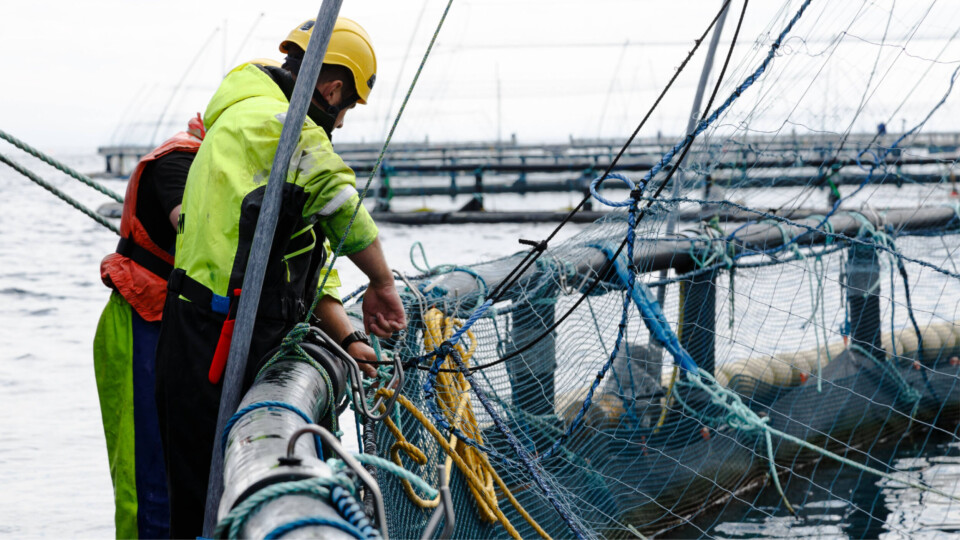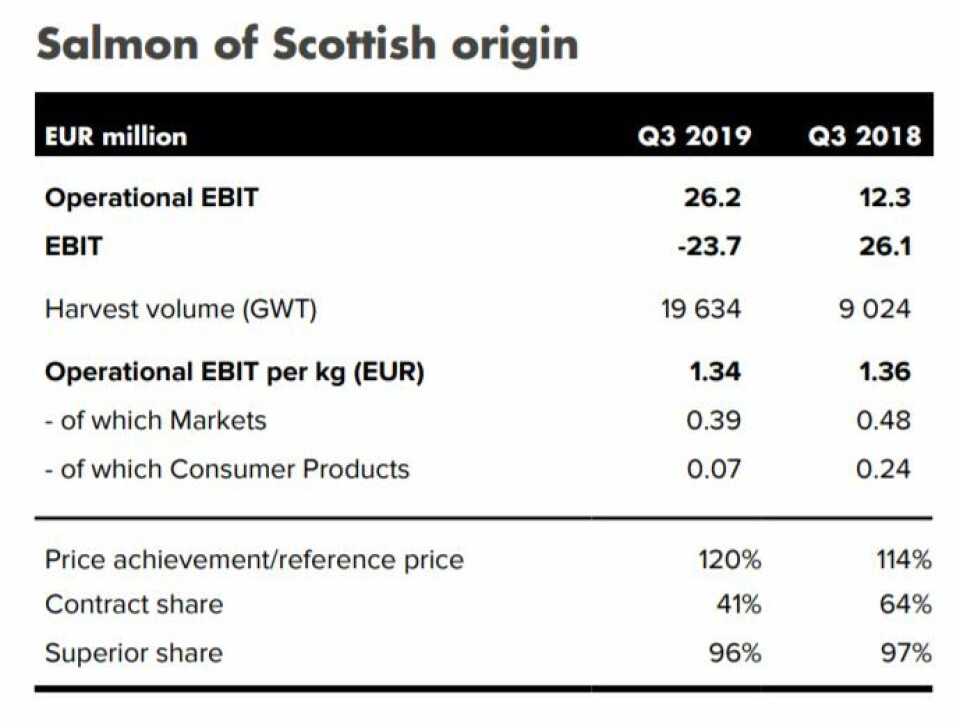
Algal bloom dents record quarter for Mowi Scotland
Mowi Scotland’s farm at Rum was hit by an algal bloom that “took out quite a bit of fish” during the third quarter of this year, Mowi chief executive Alf-Helge Aarskog said today.
The company’s Scottish operation has also had to deal with other fish health issues, Aarskog said during a presentation of Mowi’s third-quarter report in Oslo.
As previously reported following a market update in mid-October, Mowi Scotland harvested a record 19,634 tonnes (gutted weight equivalent) in Q3, more than twice the harvest volume of Q3 2018 when it had fewer mature fish in the water.

120% price achievement
The high volume and decreased biological costs more than offset the effects of increased mortality costs and lower prices and allocated margin from Consumer Products from the same quarter of 2018.
Superior share was 96% (Q3 2018: 97%) and price achievement was 120% (114%) of the reference price.
Operational EBIT was €26.2 million (€12.3m) and EBIT per kg was €1.34 (€1.36).
Seawater temperatures
“The biological situation in our Scottish farming operations have become more challenging during the third quarter,” said Mowi in its report.
“This development has coincided with significantly increased seawater temperatures. Several farms are facing biological issues. Incident based mortality losses were high in the third quarter, and amounted to €8.8 million related to an algal bloom and fish health issues (€1.2 million in the third quarter of 2018). Sea lice levels at the end of the quarter were higher than at the end of the corresponding quarter of 2018.”
Costs are expected to increase in the fourth quarter on lower volumes and more challenging biological conditions.
Feed mill
Aarskog pointed to progress at Mowi’s feed mill at Kyleakin on Skye, which has been undergoing commissioning.
“The feed plant in Scotland will be up and running at full speed in the fourth quarter,” said the CEO.
Mowi expects to harvest 62,000 tonnes in Scotland this year, rising to 67,000 tonnes in 2020.
The company will harvest 430,000 tonnes worldwide this year, rising to 450,000 tonnes next year.
Mowi Norway is expected to increase volume by 24,000 tonnes in 2020, and Mowi Faroes by 2,000 tonnes, but Mowi Canada is expected to produce just 44,000 tonnes, a 10,000-tonne reduction on this year’s figure. Mowi’s operations in Chile and Ireland are each expected to produce 500 tonnes fewer next year, at 64,000 tonnes and 6,000 tonnes respectively.
13% global supply increase
Overall Mowi’s operational EBIT fell by nearly 29% in Q3 this year compared to the same period in 2018, despite record quarterly volumes and sales.
The company blamed an unexpected 13% increase in the global supply of salmon, which depressed spot prices, and increased costs caused by biological problems.
It an operational EBIT of €147.8 million in Q3 2019, a fall of €59.3m compared to the €207.1m earned in Q3 last year.




















































